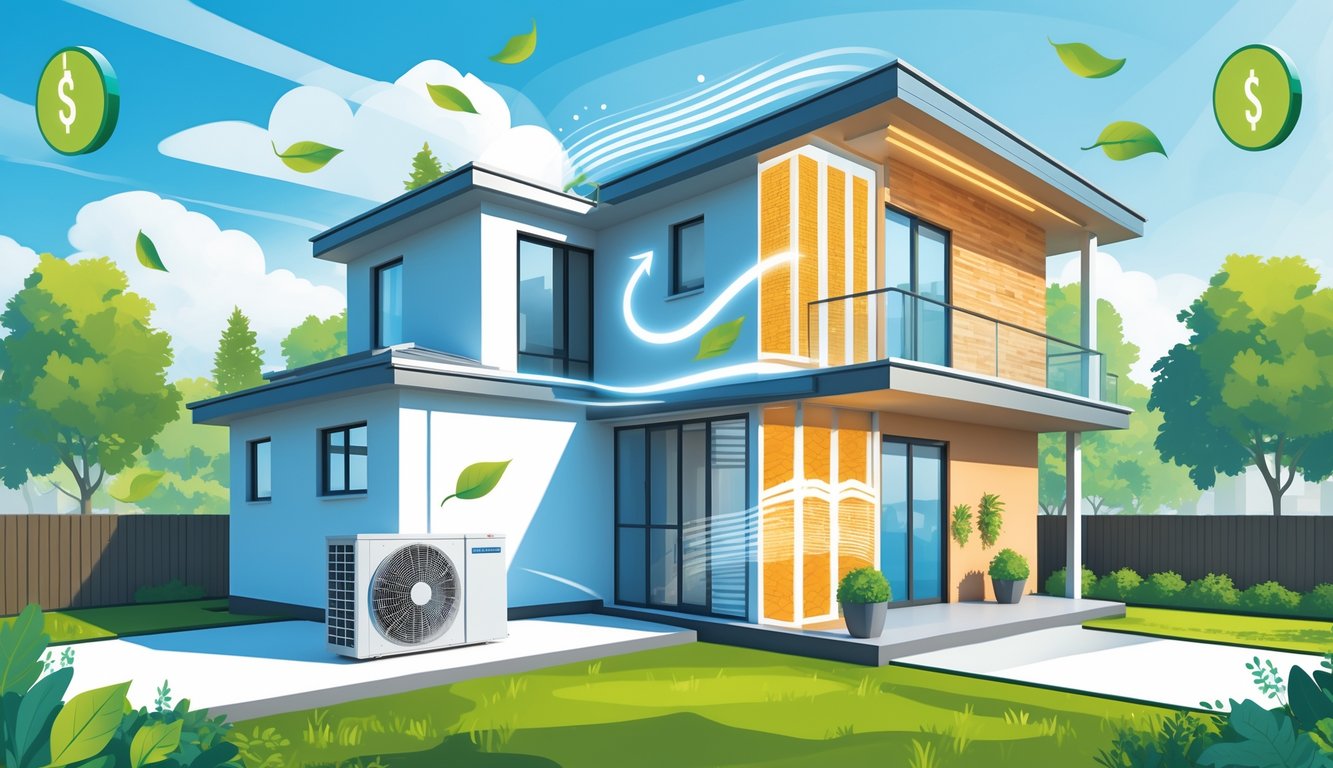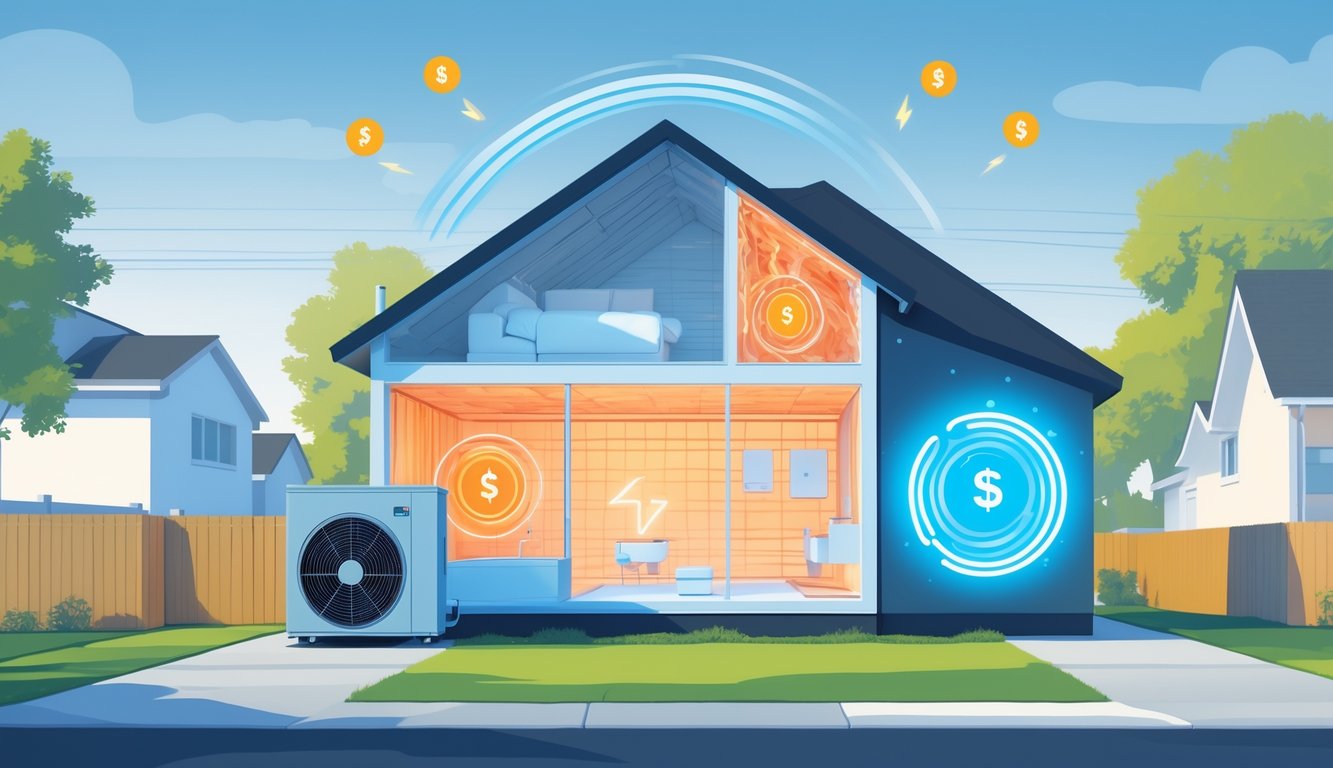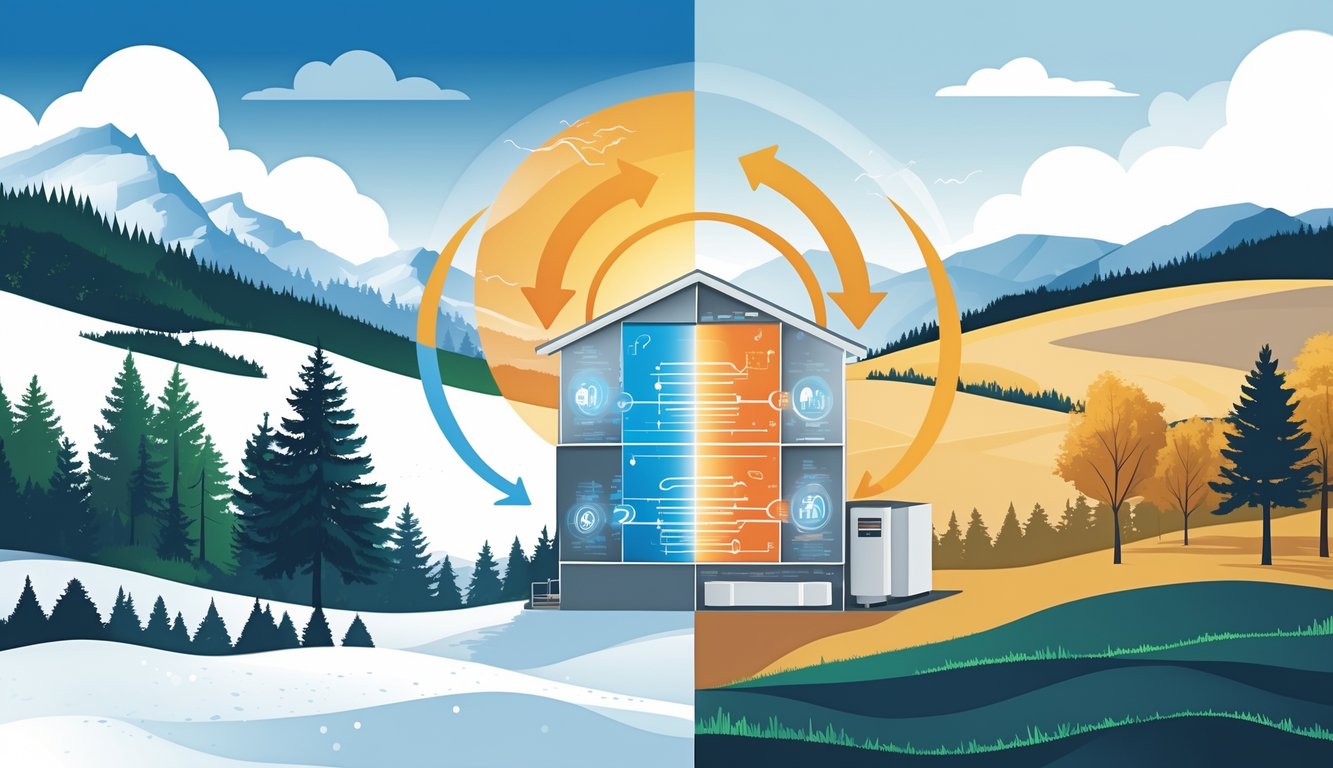
The Role of Electrification in Home Upgrades

Thought insulation was always the star, right? Nope. Suddenly, electrification’s everywhere—heat pumps, grid electricity, solar panels, and my old attic insulation feels like a relic. Nobody brags about ductwork, but everyone’s suddenly comparing kilowatt-hours at the barbecue.
Reducing Reliance on Fossil Fuels
Last winter, my gas bill wiped out my grocery budget. Switching from a furnace to a heat pump wasn’t just about being “eco”—it actually saved me money. The MIT Technology Review says more heat pumps sell now than gas furnaces. It’s like plugging a toaster into your whole house. Not every home has good ducts—try telling your uncle you want ductless, the dinner table goes off the rails.
Upgrade costs? All over the place. Sometimes manageable, sometimes “please let there be a rebate.” Heat pumps kicked fossil fuels out of my house faster than my cousin leaves family dinner. There’s a $2,000 federal tax credit and sometimes up to $8,000 in state rebates (if you can find them). I did the math—insulation never handed me surprise money. And insulation doesn’t actually remove fossil fuels from your life the way full electrification does.
Integration with Solar and Battery Storage
Solar panels aren’t just for show, but if you saw mine in April under all the pollen, you’d think otherwise. My heat pump runs off rooftop solar in summer, so my electric bill drops to almost nothing. In February? Battery storage is nice, but it runs out way too fast. Still, it helps.
Pairing a heat pump with solar basically turns you into your own utility company, minus the customer service. On cloudy days, I still use the grid, so, yeah, off-grid dreams are a joke. Batteries cost more than they should, but at least I can dodge peak rates. Insulation doesn’t care about solar timing or keep the lights on in an outage (unless you count flashlight tag). The high-efficiency sticker on my heat pump? I showed it off to my neighbor like I’d caught a rare Pokémon. No insulation ever made my house feel like I was running it on sunlight.
Climate and Geographic Factors Impacting Savings

Everyone’s always said “just insulate,” but now I’m reading that, in some places, swapping out an old gas furnace for a cold climate heat pump is what actually drops the bills. You’d think thick walls or fluffy insulation would always win, but nope—sometimes it’s all about the local weather. My cousin lives where they burn more heating oil than coffee, and honestly, location just exposes which upgrade works.
Performance in Cold Climates
A cold snap changes everything. Last winter, I obsessed over whether my heat pump would just quit at -10°F. Cold climate heat pumps—especially ductless mini-splits—are not your grandpa’s furnace. The National Renewable Energy Lab says these things can cut carbon and, even in “Siberia-lite” states, avoid bill spikes most of the time.
Propane and fuel oil get crazy expensive when it’s cold, so switching to a high-efficiency heat pump slashes heating costs for, like, 65 million homes, according to NREL’s cost savings analysis. Bill Wilson, Ph.D., says insulation still helps, but unless your place is a drafty 1940s disaster, it’s not always the fastest payback. Up north, bills might jump by $1,100 if you don’t seal up and add insulation, per a University of Michigan study. Meanwhile, my neighbor’s still fiddling with his ancient oil furnace every January like it’s a family heirloom. Why?
Adapting Upgrades to Local Conditions
Ever sit through a community energy audit? No one-size-fits-all. In places with cheap natural gas and mild winters, a heat pump doesn’t always save much. But in regions hooked on fuel oil or propane, it’s night and day. Federal incentives (like the $2,000 Energy Efficiency Home Improvement tax credit) make heat pumps and wiring upgrades way more tempting—unless local rates eat up the savings.
It’s wild when the “insulation solves everything” crowd ignores the messy reality. Try telling someone in Oregon, where a ducted heat pump can still cost over $18,000 after rebates (case study), that insulation always wins. Nope. I watched one client ditch oil for a Mitsubishi cold-climate unit and their winter bills halved, but their gas-using neighbor barely noticed a change. Even utility reps admit, off the record, they can’t predict savings street by street—weather, fuel mix, local codes, it’s all chaos.